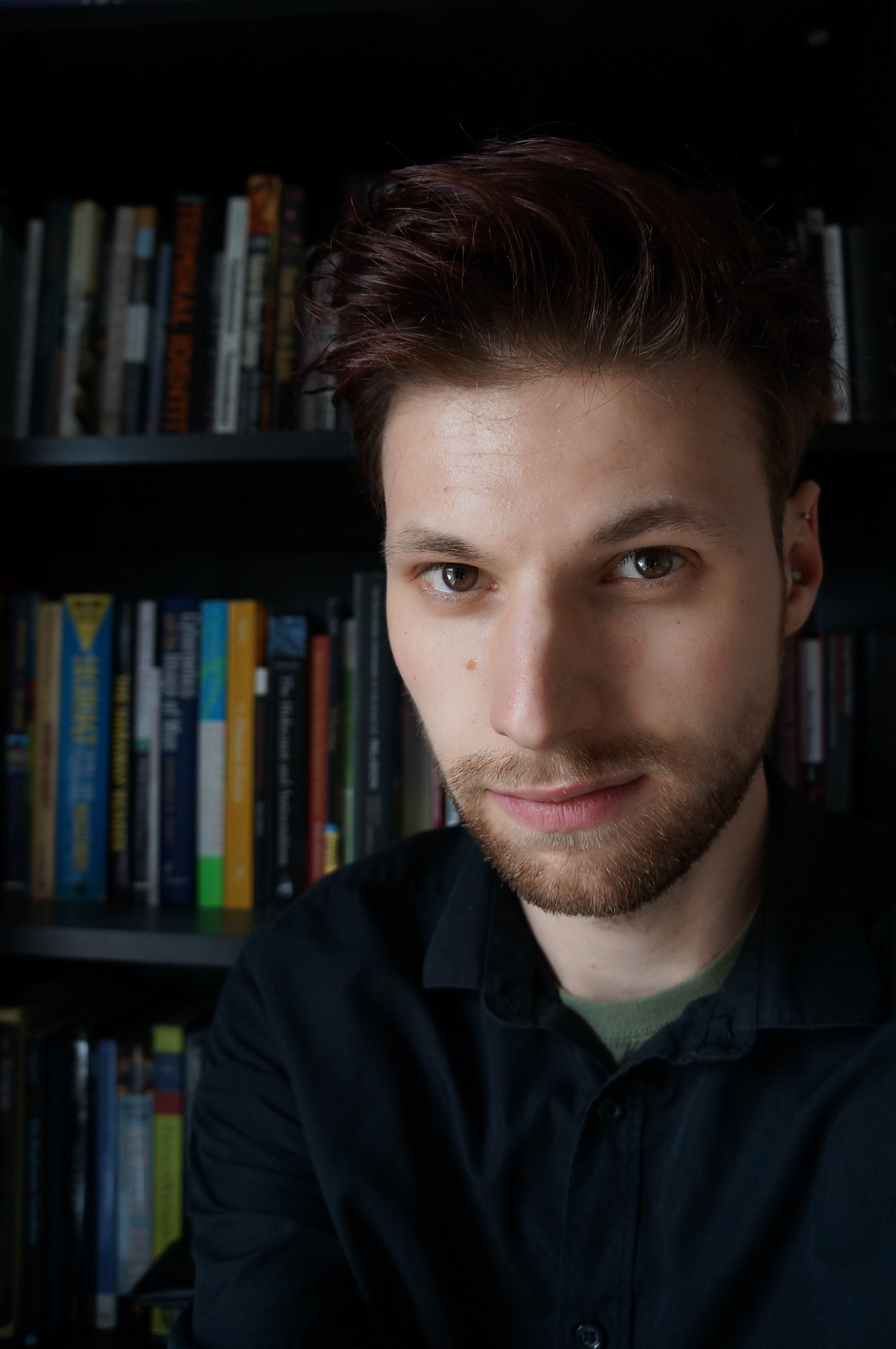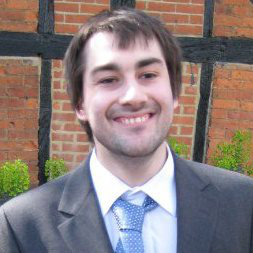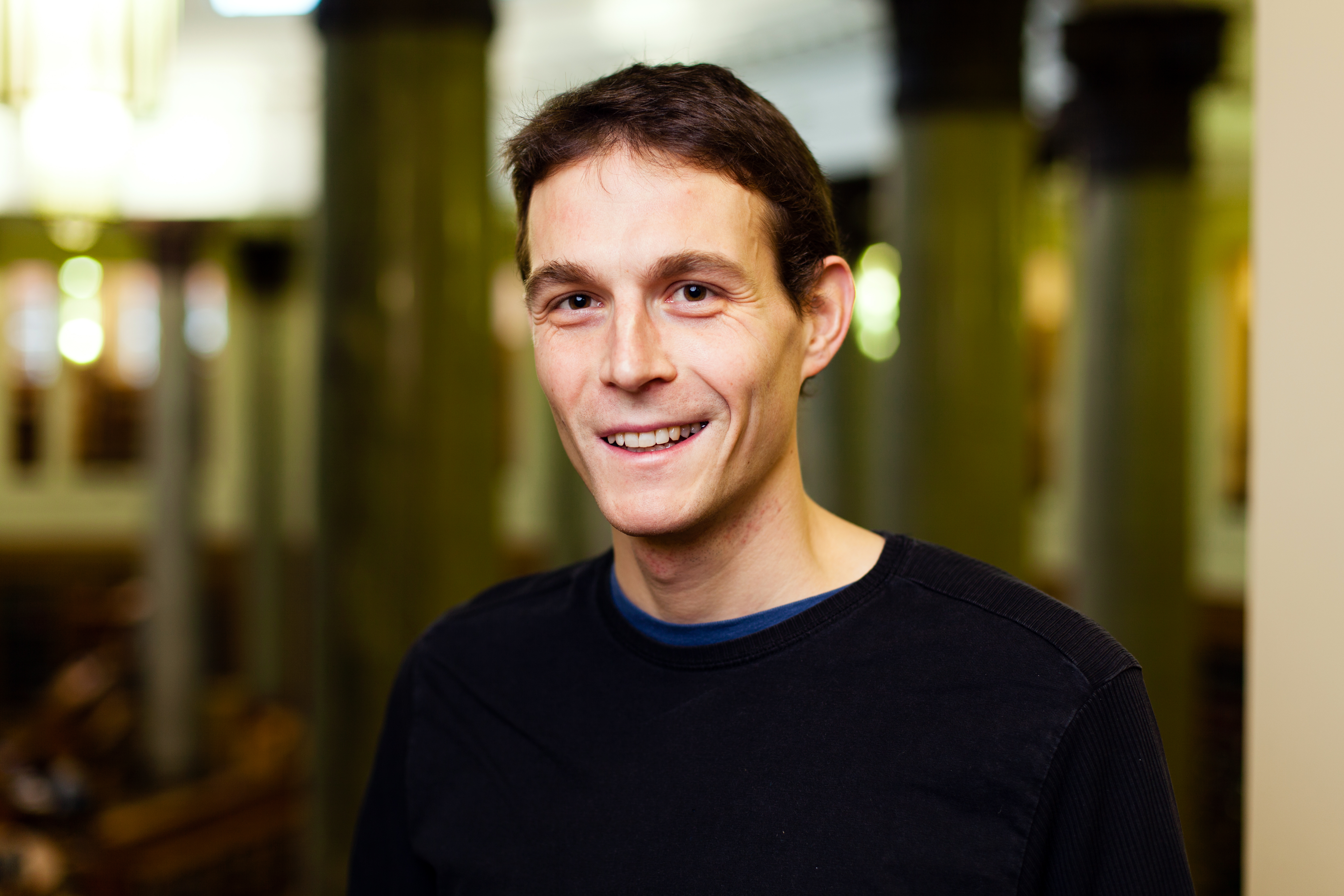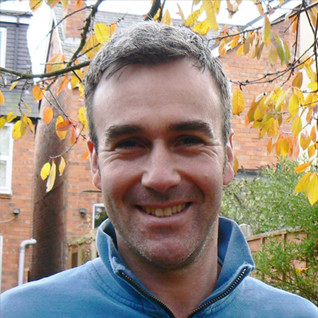Since its inception, six flagship postdoctoral projects have been completed at LTI.
Each project is introduced by its researcher below, the most recent first. (For the current postdoctoral project, click here.)
Wren Radford (2020-22)
Scott Midson (2016-19)

I led the LTI project, Living with and Loving Machines: Exploring Care, Risk, and Trust as Challenges for Technocultural Lifeworlds. As part of this research, I investigated how we think about and interact with technologies in an everyday as well as envisioned sense, looking at past, present, and future narrations of such relationships.
My research interests lie at the intersection of posthumanism and theology, where posthumanism is a broad set of attitudes that look at the critical de/construction of the human in the context of ecology, enhancement, and social ethics. Technology features heavily in these conversations, and to that end my recent doctoral thesis, ‘The Cyborg and the Human: Origins, Creatureliness, and Hybridity in Theological Anthropology’, critically explored how the technological figure of the cyborg poses a challenge to conventional notions of what it is to be human and to be made in the image of God in a paradisiacal garden. A book based on this research has been published by I.B.Tauris under the title of Cyborg Theology: Humans, Technology, and God. I have also explored technologies in other contexts, including pedagogy and andragogy, utopia and dystopia, and work and leisure. My research project at the LTI took up these conversations, using the notion of ‘love’ to critically explore our interactions with and assumptions about technologies.
The LTI has provided a supportive environment to develop and discuss ideas with fellow researchers at a range of levels and working from a range of backgrounds, on a range of topics. There is generally a bold approach to working on innovative projects, as well as a proactive ethos among the LTI community in terms of organising conferences and publishing material. I had already benefitted from this ethos during my time as a doctoral candidate, and am deeply appreciative to have had the opportunity to develop these skills and ideas further during my time as a postdoctoral researcher.
Ben Wood (2013-15)
 Between 2013-15 I led the research project What Next for Individualism? for the Lincoln Theological Institute. The project explored the meaning and future of individualism in Western societies, with the object of developing a qualified theological defence of core elements of liberal culture, including both autonomy and privacy. This interdisciplinary enterprise brought together a diverse set of stakeholders, including theologians, philosophers, politicians, and activists, with the object of developing a rich set of dialogues between secular and religious communities.
Between 2013-15 I led the research project What Next for Individualism? for the Lincoln Theological Institute. The project explored the meaning and future of individualism in Western societies, with the object of developing a qualified theological defence of core elements of liberal culture, including both autonomy and privacy. This interdisciplinary enterprise brought together a diverse set of stakeholders, including theologians, philosophers, politicians, and activists, with the object of developing a rich set of dialogues between secular and religious communities.
My research interests include the religious origins of political liberalism as well as theological engagements with secularism and issues of social pluralism. My forthcoming monograph with Fortress Press, The Augustinian Alternative: Religious Scepticism and the Search for a Liberal Politics, forwards the claim that a close reading of Augustine’s epistemology can assist political theologians in developing affirmative accounts of political liberalism. This claim is set in a scholarly context which is profoundly hostile to constructive theological readings of liberal culture. As a corrective to such antagonism, this book suggests that, far from being natural opponents, Christian communities can work fruitfully with political liberals based on common principles.
My postdoctoral research at the LTI gave me the opportunity to greatly extend this discussion in several key directions, by considering theological approaches to notions of ‘individuals’ and ‘persons’ in liberal societies. The conference Postliberalism and Society (July 2014) provided a space for scholars and activists to consider the concept of ‘post-liberalism’ for the future of Church engagement in areas of public policy. On that occasion, the Institute was pleased to welcome to among others, Lord Stewart Wood (previously Minister with Portfolio in Ed Milland’s Shadow and Cabinet) and David Goodhart (Chief Executive of the London-based public policy think tank Demos). The project’s twin conference Self and the City (April 2015) considered the themes of self and citizenship in the context of urban living. A guiding theme of the conference was the degree to which the vision of self, presupposed by ‘the city’ was compatible with the imperatives of living in Christian communities. In this respect, the conference actively overlapped with many of the long-term interests of the LTI, including theological approaches to notions of ‘locality’ and belonging. Guests included a longtime friend of the Institute, Professor John Rodwell, and the Greenpeace campaigner Ruth Davis. A collection of essays produced during the project, entitled Renewing the Self: Religious Perspectives, will be published in mid-2017 by Cambridge Scholars.
During my time at the University of Manchester I was given the support and encouragement to develop a body of president scholarship, published a series of peer-reviewed articles exploring a variety of topics including Christian responses to multiculturalism, theological defences of tolerance and affirmative readings of political liberalism. I was also a regular contributor to the online blog Political Theology Today.
Until recently I was a Lecturer in the Department of Theology and Religious Studies at the University of Chester, providing teaching in the areas of contextual theology and Christian ethics. My present research considers what Christian theological reflection can offer to contemporary debates about the importance of local political identities in the wake of globalisation.
Susannah Cornwall (2011-13)
Between 2011 and 2013, I led the Intersex, Identity, Disability: Issues for Public Policy, Healthcare and the Church project. This included empirical work on identity with intersex Christians from Britain, and the production of open-access resources on intersex and faith for a range of audiences. An international conference was held in Manchester in 2012, and the papers were published as Cornwall, Susannah (ed.) (2015), Intersex, Theology, and the Bible: Troubling Bodies in Church, Text, and Society, New York, NY: Palgrave Macmillan.
Funding from the Lincoln Theological Institute allowed me to travel to interview research participants across Britain, and also enabled me to gain additional funding for a lecture tour in the United States. The input of the LTI advisory board was also invaluable in shaping and advancing the project.
My books include: Sex and Uncertainty in the Body of Christ: Intersex Conditions and Christian Theology (Routledge, 2010); Controversies in Queer Theology (SCM, 2011); Theology and Sexuality (SCM, 2013); and Un/familiar Theology: Reconceiving Sex, Reproduction and Generativity (Bloomsbury, 2017). I am also the editor of books including Intersex, Theology, and the Bible: Troubling Bodies in Church, Text, and Society (Palgrave Macmillan, 2015); and, with John Bradbury, Thinking Again About Marriage: Key Theological Questions (SCM, 2016). My current research projects are: 1. Modelling Transgender Spiritual Care: Pilot Framework for People Undergoing Gender Transition in NHS England Gender Clinics, funded by the Sir Halley Stewart Trust, conducted in partnership with the West of England NHS Specialist Gender Identity Clinic. 2. Mind the Gap? Perceptions and Realities of Sexualities and Diversities Education for Church of England Ordinands, funded by the Common Awards seed funding scheme, conducted in partnership with David Nixon (Dean of Studies, South West Ministry Training Course).
I am now Senior Lecturer in the Department of Theology and Religion at the University of Exeter, where I teach constructive and contextual theologies and theological ethics. Since 2014 I have been Director of EXCEPT, the Exeter Centre for Ethics and Practical Theology.
Stefan Skrimshire (2007-10)
 I led the 2007-2010 LTI research project, "Religion and Climate Change", whose objective was to understand how climate change activism (broadly understood) was shaped by both theological and political beliefs about the future. The LTI position allowed me significant flexibility to answer this question in innovative and dynamic ways. I hosted a series of day-long workshops under the theme 'Future Ethics: Climate Change, Political Action, and the Future of the Human" - for activists, policy makers, artists and academics from a wide range of sciences, arts and humanities. Some of the findings were published by Continuum in Future Ethics: Climate Change and Apocalyptic Imagination (2010). In December 2009 I took a film crew to the UN Conference of the Parties in Copenhagen, and recorded over 50 hours of footage of protest and interviews with politicians, NGOs and climate activists. This contributed to an educational documentary film which I produced called Beyond the Tipping Point? Conversations on Climate, Action and the Future (2010). Employing a project manager, I was able to distribute the film with a discussion pack to over 400 institutions around the world (covering every continent!), from trade unions in the north of England, to religious orders in the US, to government departments in South America. I spoke about the findings of my research to a number of constituencies in the UK, including a conference at Lambeth palace attended by the archbishop of Canterbury. This fascinating and fruitful 3 years of work wouldn’t have been possible without the confidence and freedom granted by the LTI trustees to pursue creative ways to ‘do’ research in theology and society. It also personally provided me with the confidence and time to undertake more traditional academic research in this highly interdisciplinary area (beginning with the publication of my PhD thesis, Politics of Fear, Practices of Hope (Continuum, 2008) and the publication of several journal articles, all of which enabled me to secure my first full time lecturing post at the University of Leeds in 2011.
I led the 2007-2010 LTI research project, "Religion and Climate Change", whose objective was to understand how climate change activism (broadly understood) was shaped by both theological and political beliefs about the future. The LTI position allowed me significant flexibility to answer this question in innovative and dynamic ways. I hosted a series of day-long workshops under the theme 'Future Ethics: Climate Change, Political Action, and the Future of the Human" - for activists, policy makers, artists and academics from a wide range of sciences, arts and humanities. Some of the findings were published by Continuum in Future Ethics: Climate Change and Apocalyptic Imagination (2010). In December 2009 I took a film crew to the UN Conference of the Parties in Copenhagen, and recorded over 50 hours of footage of protest and interviews with politicians, NGOs and climate activists. This contributed to an educational documentary film which I produced called Beyond the Tipping Point? Conversations on Climate, Action and the Future (2010). Employing a project manager, I was able to distribute the film with a discussion pack to over 400 institutions around the world (covering every continent!), from trade unions in the north of England, to religious orders in the US, to government departments in South America. I spoke about the findings of my research to a number of constituencies in the UK, including a conference at Lambeth palace attended by the archbishop of Canterbury. This fascinating and fruitful 3 years of work wouldn’t have been possible without the confidence and freedom granted by the LTI trustees to pursue creative ways to ‘do’ research in theology and society. It also personally provided me with the confidence and time to undertake more traditional academic research in this highly interdisciplinary area (beginning with the publication of my PhD thesis, Politics of Fear, Practices of Hope (Continuum, 2008) and the publication of several journal articles, all of which enabled me to secure my first full time lecturing post at the University of Leeds in 2011.
I continue to lecture at the School of Philosophy, Religion and History of Science at Leeds, in religion and politics, continental philosophy, and ethics. My research continues where I left off in Manchester: understanding the formation of political responses to environmental crisis through engaging with Christian eschatology and philosophies of history. I am currently working on a new monograph on the theological contribution to “deep future” narratives in contemporary environmental movements and the Anthropocene epoch debate.
Ian Jones (2000-07)
 I am director of St Peter’s Saltley Trust (www.saltleytrust.org.uk), a charity working in the West Midlands region supporting projects in three main areas: adult theological education, faith and the further education sector, and religious education in schools. Through this I engage in a wide range of research and evaluation with a religion and society focus, in the course of supporting the projects we fund. This has included research on what difference A-Level RS makes to students who study it, and evaluations of experimental models of church leadership formation and of a pioneering interfaith tour guiding course. Our work with further education colleges has led to a developing interest in the field of religious literacy.
I am director of St Peter’s Saltley Trust (www.saltleytrust.org.uk), a charity working in the West Midlands region supporting projects in three main areas: adult theological education, faith and the further education sector, and religious education in schools. Through this I engage in a wide range of research and evaluation with a religion and society focus, in the course of supporting the projects we fund. This has included research on what difference A-Level RS makes to students who study it, and evaluations of experimental models of church leadership formation and of a pioneering interfaith tour guiding course. Our work with further education colleges has led to a developing interest in the field of religious literacy.
My original academic background is in the history of Christianity, and I remain an active researcher in this field. The book of my PhD, The Local Church and Generational Change in Birmingham 1945-2000, was published in the Royal Historical Society/Boydell and Brewer’s ‘Studies in History’ series in 2012. I have also written on the historical outworking of Anglican social theology, in articles on the churches’ responses to unemployment since the early nineteenth century, and on the 1941 and 1991 Malvern conferences on the churches and society. Growing out of the Trust’s commitment to adult theological education and my own research interests, I am currently researching changing conceptions of Christian ‘discipleship’ through history.
Whilst at LTI my primary project was research into the Church of England’s reception of women’s ordination as priests in the ten years after the first women were ordained priest in 2004. This was published as Women and Priesthood in the Church of England: Ten Years On (Church House Publishing, 2004). Whilst at LTI I also organised a follow-up international conference on the same theme, papers from which were published in Women and Ordination in the Christian Churches: International Perspectives (Continuum 2008, paperback 2013, co-edited with Kirsty Thorpe and Janet Wootton). My time at LTI was hugely formative in a number of ways: It offered the opportunity to undertake a large-scale piece of social research using a mixture of quantitative and qualitative methods, which helped me develop research skills I use today. It was an intellectually formative and fertile time in my development as a researcher, working with so many good colleagues both in LTI’s Sheffield incarnation and then latterly as part of a strong Religions and Theology subject area in Manchester. Furthermore as an early-career researcher it offered a strong platform to move into a more senior role in due course.
